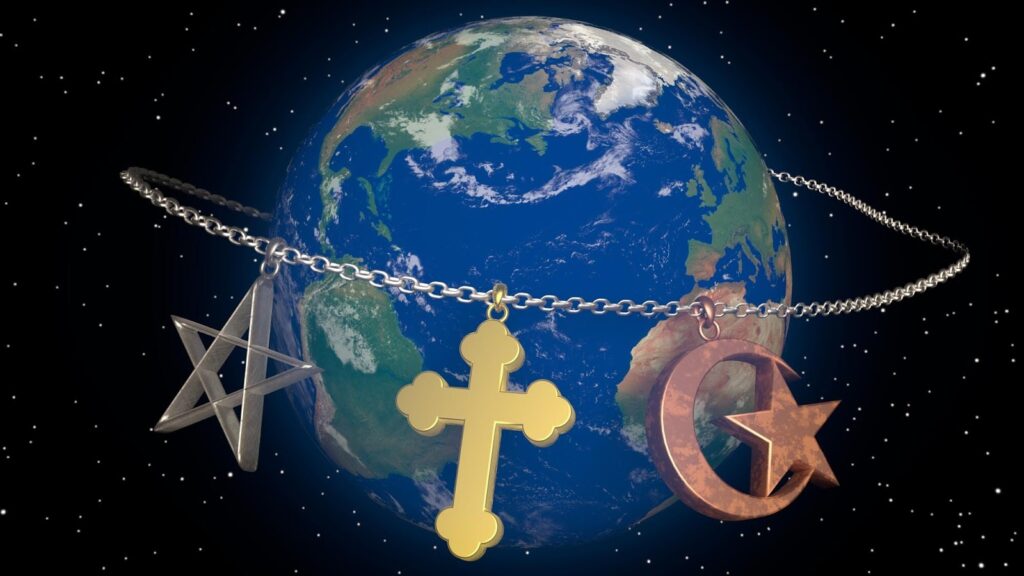Image source: https://pixabay.com/illustrations/religion-world-peace-faith-3d-1637241/
Kabbalah, a spiritual tradition from Judaism, has become popular globally as a means for personal growth and transformation. The term “Kabbalah” means “receiving” and refers to Judaism’s mystical teachings. Seen as Judaism’s esoteric dimension, it offers deep insights into reality and human existence. Recently, spiritual seekers of all backgrounds have turned to Kabbalah for its practical approaches to self-improvement. In this article, we will explore some key concepts in Kabbalah that can help transform your spiritual journey.
The Tree of Life
The Tree of Life is a crucial symbol in Kabbalah, representing the universe’s structure and the Divine creation process. It features ten interconnected nodes, or sephiroth, each representing God’s attributes and creation aspects. Moses’s story and Passover deeply connect with Kabbalah, focusing on liberation and spiritual freedom.
Passover celebrates the Hebrews’ escape from Egyptian slavery, symbolizing the journey from bondage to enlightenment and the quest for spiritual awakening. Today, as described at kab.co.il, millions worldwide connect to this freedom energy during Passover, aiming to transcend their selfishness for unity. Moses’ mission to free the Israelites mirrors our inner path to liberation and self-discovery.
The Law of Cause and Effect
Kabbalah teaches that the law of cause and effect governs everything in existence. This means that every action, whether physical or spiritual, has a corresponding consequence. Understanding this principle is crucial for personal transformation in Kabbalah, as it encourages individuals to take responsibility for their actions and their spiritual growth.
It teaches that we can shape our lives and the world by focusing our actions, thoughts, and desires on positive and selfless outcomes. This law highlights our interconnectedness and how our actions contribute to everyone’s well-being. By practicing this principle, we deepen our connection with the divine and lead a more purposeful life.
The Power of Intention
In Kabbalah, intention is seen as a powerful tool for transformation. It teaches that our intentions, whether conscious or unconscious, have a direct impact on the outcome of our actions. By setting clear and positive intentions, we align ourselves with the divine will and attract positive experiences and outcomes into our lives.
Image source: https://unsplash.com/photos/girl-reading-book-XqXJJhK-c08
Moreover, intention in Kabbalah goes beyond just individual desires; it also encompasses our intentions towards others and the world. By setting altruistic intentions, we can contribute to the overall positive transformation of the world and bring about positive change.
The Importance of Study and Self-Reflection
In line with the idea of personal responsibility, Kabbalah emphasizes the importance of study and self-reflection in one’s spiritual journey. Through studying sacred texts and engaging in contemplative practices, individuals can gain a deeper understanding of themselves, the world around them, and their relationship with the divine.
Self-reflection is also seen as a crucial tool for personal transformation in Kabbalah. By honestly examining our thoughts, emotions, and behaviors, we can identify areas for improvement and work towards aligning ourselves with the divine will. This process of self-reflection is ongoing and requires a willingness to learn, grow, and evolve constantly.
Kabbalah offers valuable insights and practical tools that can transform one’s spiritual journey. The concepts discussed in this article are just a glimpse into the vast and complex teachings of Kabbalah. As with any spiritual practice, it is important to approach Kabbalah with an open mind, a sincere heart, and a willingness to learn and grow. By incorporating these key concepts into our lives, we can deepen our connection with the divine and bring about positive transformation in ourselves and the world around us.





